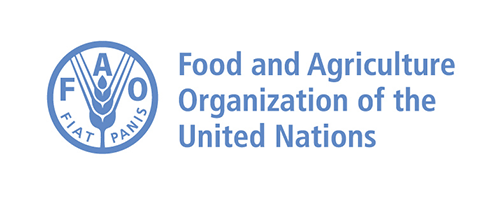The FAO Legal Office provides in-house counsel in accordance with the Basic Texts of the Organization, gives legal advisory services to FAO members, assists in the formulation of treaties on food and agriculture, for which the Director-General acts as Depositary, publishes legal studies and maintains a database (FAOLEX) of national legislation and international agreements concerning food and agriculture (including fisheries, forestry and water).
Members:
Resources
Displaying 14231 - 14235 of 15550Federal Law No. 20-FZ on amendments and addenda to the article 24 of the Federal Law on state registration of immovable property and its transactions.
This Federal Law modifies paragraph 1 of article 24 in the following manner: "In case of sale of a share in the common property to an outsider the owner must attach to the application form for the state registration the documentation confirming that the co-owners had been informed of the forthcoming transaction , of the price of share and the conditions of sale.
Loi nº 2000-1208 relative à la solidarité et au renouvellement urbains.
Cette loi établit les dispositions générales communes aux schémas de cohérence territoriale, aux plans locaux d'urbanisme et aux cartes communales.
Federal Law No. 122-FZ on state registration of immovable property and its transactions.
Immovable property subject to state registration in accordance with this Federal Law are the plots of land, of subsoil, detached waterworks and other units situated on land and inseparably linked to it such as edifices, constructions, lodging and premises, forests and perennial plantations, condominiums, enterprises and property complexes. This Federal Law consists of 6 Chapters composed of 33 articles. Chapter 1 (arts. 1-8) lays down the general provisions. Chapter 2 (arts.
Décret nº 2001-260 modifiant le Code de l'urbanisme et le code de l'expropriation pour cause d'utilité publique et relatif aux documents d'urbanisme.
Ce décret établit les dispositions réglementaires communes aux schémas de cohérence territoriale, aux plans locaux d'urbanisme et aux cartes communales. Il s'agit notamment, des dispositions relatives aux informations portées par l'Etat à la connaissance des communes ou de leurs groupements; aux projets d'intérêt général; aux associations locales d'usagers et à la Commission de conciliation. Le décret fixe, en outre, les dispositions relatives au contenu, à l'élaboration et la révision de ces documents.
Décret nº 2001-261 relatif aux zones d'aménagement concerté et modifiant le Code de l'urbanisme.
Ce décret porte dispositions relatives à la création, à la réalisation et à la suppression ou modification des zones d'aménagement concerté.
Met en oeuvre: Loi nº 2000-1208 relative à la solidarité et au renouvellement urbains. (2000-12-13)


